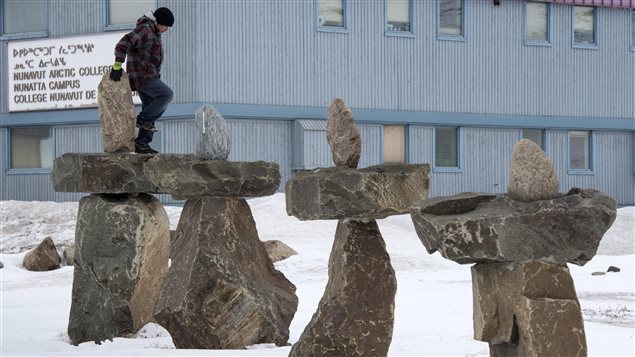The Oxford English Dictionary added about 500 new words to the language today, including some you may have heard, such as twerk vape and sext, but some uniquely Canadians words made the cut.
In a sign of the times, the Canadian words all came from other languages and linguists call them loanwords.
From Quebec, the French word dépanneur, which Quebecers of whatever language background know as the corner store or convenience store. The OED spelling, however, will not include the accent.
The OED also added inukshuk, borrowed from Inuktitut language. An inukshuk is “a structure of rough stones stacked in the form of a human figure.” according to the OED. Inukshuks can be seen along highways in southern Ontario where stone had to be dynamited to put the road through.
Mangia-cake, an Italian-English compound word, was included, and it is defined as: “a derogatory term used by some Canadians of Italian descent to refer to a non-Italian.”
Two other words were re-defined, thanks to Canadian usage. A ‘keener‘ in Canada, is “a person, esp. a student, who is extremely or excessively eager, zealous, or enthusiastic.”
While stagette, first used in the United States, to mean a woman attending a social function without a partner, in Canada it has come to be known as the name for a party given for a woman about to be married, more likely to be called a “bachelorette party” in the U.S. or a “hen night” in the United Kingdom. The ‘stag’ is the name given to the night out for a man about to be married in Canada.
According to the OED this update is the first to include dozens of entries that came into use in the 21st century, so it includes words for new experiences such as a photobomb, a crowdfund, a staycation and a sext, all of which did not exist before 2000.
And in keeping with the technological evolution, social media has brought the words tweeting, retweet and twitterati to the OED, twitterati of course, referring to Twitter users, especially “prolific contributors or those who have high numbers of followers.”







For reasons beyond our control, and for an undetermined period of time, our comment section is now closed. However, our social networks remain open to your contributions.